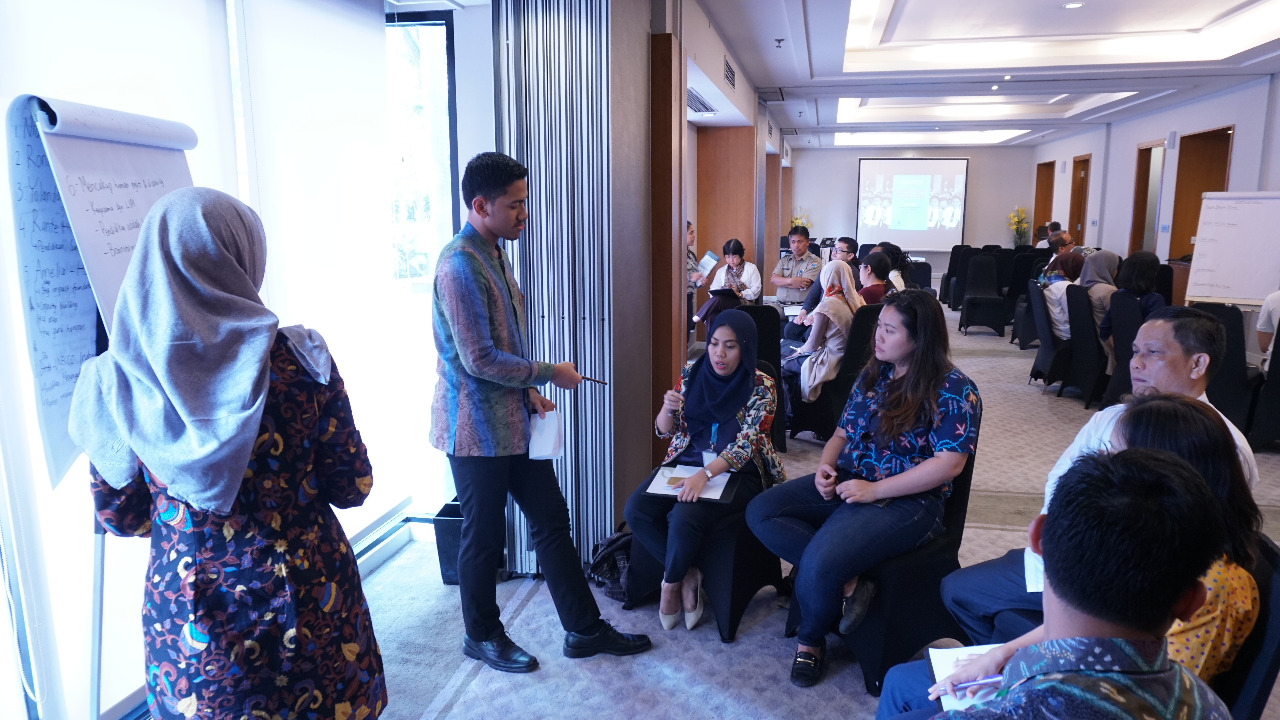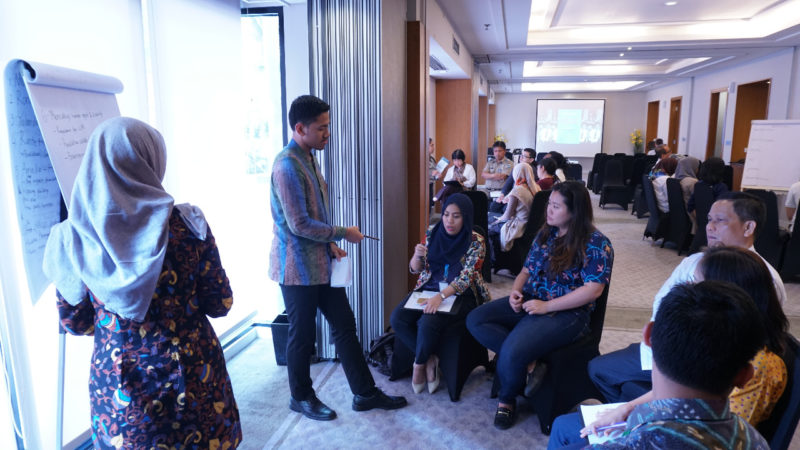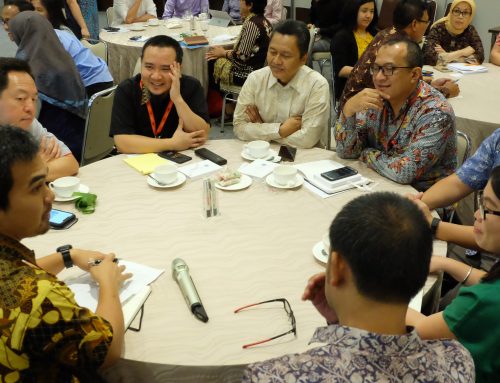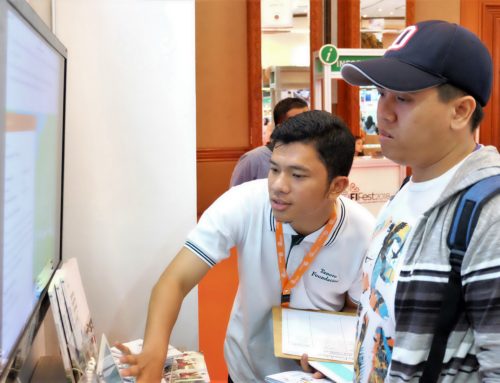By: Patricia Kandou, Center for Indonesian Policy Studies (CIPS)
An array of efforts is being done by organizations and institutions in Indonesia to promote research-based knowledge on educational development. Data are collected on topics ranging from teacher competency and student motivation to school fees and accessibility. What more then, after the flow of useful data?
In a collaborative effort, the Center for Indonesian Policy Studies (CIPS) and United Nations Educational, Social and Cultural Organization (UNESCO) surfaced the initiative to bring together a National Working Group that consists of stakeholders in the sector of education in Indonesia, both governmental and non-governmental. The objective was to gather and align information which will be then made available through one all-inclusive access. With a single access to information, data processing is better facilitated. Turning the data into a product or service to support national education—in other words, Knowledge Valorization—thus becomes more effective.
The forming of the National Working Group is the kick start of the whole joint effort. Taking place in Aston Kuningan, on September 24th 2018, the occasion was greeted with over 20 institutions, full of enthusiasm to improve national education through information sharing and exploring possibilities. To mention a few: DKI Jakarta Provincial Education Agency, Tanoto Foundation, Bakti Barito Foundation, Yayasan Usaha Mulia, Edufor Papua, Kuark, Taman Bacaan Pelangi, and the Indonesian Ministry of Research, Technology, and Higher Education.

Representatives from various organization joined the working group organized by CIPS and UNESCO

Pandu Baghaskoro, CIPS Researcher who leads the project, underlined that the initiative aims to support the fulfillment of United Nations Sustainable Development Goals (UN SDGs) in Indonesia especially Goal no. 4 that is, Quality Education.
During the event, APC – represented by Yayasan Bakti Barito and Tanoto Foundation – also shared on its idea on Knowledge Valorization. In an attempt to promote data-driven philanthropy, APC was working on interactive online map of schools / learning units that received philanthropic supports. The platform was well received and many organizations were eager to be part of the initiative.

Dian Purbasari from Yayasan Bakti Barito and Murni Leo from Tanoto Foundation explained how organizations can use the data provided in the website to design a well-informed intervention regarding program area, geographical location, and potential collaborator.

CIPS led the discussions asking questions surrounded what data was available in each organization and how open they were in sharing the information.
From the discussion, CIPS concluded that government bodies held more general information regarding national education such as number of schools (private and public) and number of KIPs (Kartu Indonesia Pintar/Indonesia Smart Card). On the other hand, non-government bodies owned program-specific information such as student literacy in Eastern Indonesia and teacher competency.
Besides data sharing and cooperation between stakeholders, educating the user of information was crucial. Apparently, understanding data was not as simple as it may seem.
CIPS explained that a set of strategies to achieve the effort’s outcomes has been planned out, including deep dive sessions with the stakeholders in the National Working Group on the concrete steps to valorize collected data. Subsequently, a capacity building training will be held in December 2018 to liftoff the initiative.



